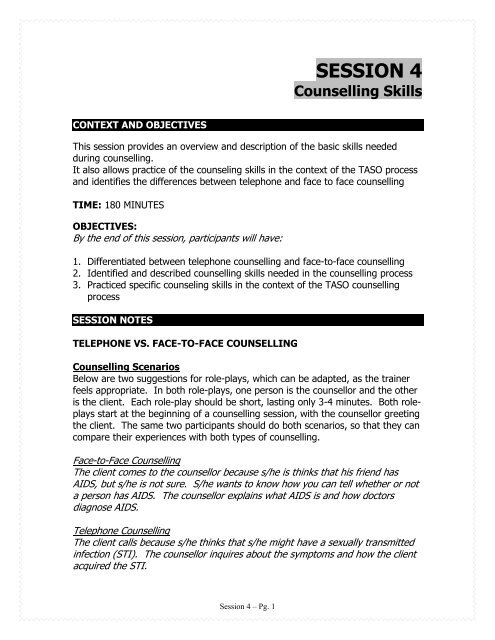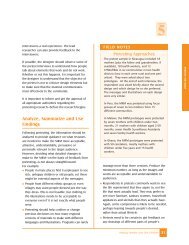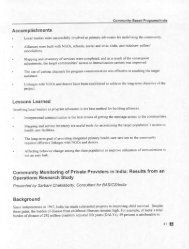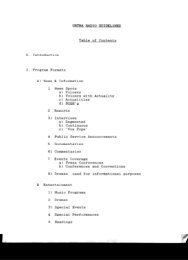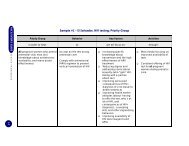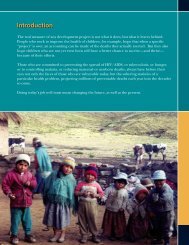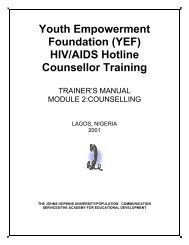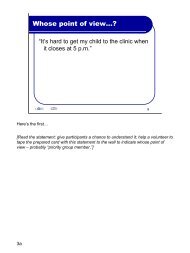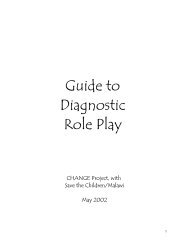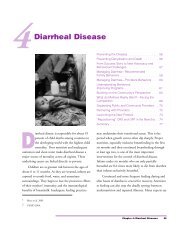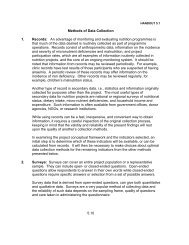MODULE TWO: COUNSELLING - FHI 360 Center for Global Health ...
MODULE TWO: COUNSELLING - FHI 360 Center for Global Health ...
MODULE TWO: COUNSELLING - FHI 360 Center for Global Health ...
Create successful ePaper yourself
Turn your PDF publications into a flip-book with our unique Google optimized e-Paper software.
SESSION 4<br />
Counselling Skills<br />
CONTEXT AND OBJECTIVES<br />
This session provides an overview and description of the basic skills needed<br />
during counselling.<br />
It also allows practice of the counseling skills in the context of the TASO process<br />
and identifies the differences between telephone and face to face counselling<br />
TIME: 180 MINUTES<br />
OBJECTIVES:<br />
By the end of this session, participants will have:<br />
1. Differentiated between telephone counselling and face-to-face counselling<br />
2. Identified and described counselling skills needed in the counselling process<br />
3. Practiced specific counseling skills in the context of the TASO counselling<br />
process<br />
SESSION NOTES<br />
TELEPHONE VS. FACE-TO-FACE <strong>COUNSELLING</strong><br />
Counselling Scenarios<br />
Below are two suggestions <strong>for</strong> role-plays, which can be adapted, as the trainer<br />
feels appropriate. In both role-plays, one person is the counsellor and the other<br />
is the client. Each role-play should be short, lasting only 3-4 minutes. Both roleplays<br />
start at the beginning of a counselling session, with the counsellor greeting<br />
the client. The same two participants should do both scenarios, so that they can<br />
compare their experiences with both types of counselling.<br />
Face-to-Face Counselling<br />
The client comes to the counsellor because s/he is thinks that his friend has<br />
AIDS, but s/he is not sure. S/he wants to know how you can tell whether or not<br />
a person has AIDS. The counsellor explains what AIDS is and how doctors<br />
diagnose AIDS.<br />
Telephone Counselling<br />
The client calls because s/he thinks that s/he might have a sexually transmitted<br />
infection (STI). The counsellor inquires about the symptoms and how the client<br />
acquired the STI.<br />
Session 4 – Pg. 1


